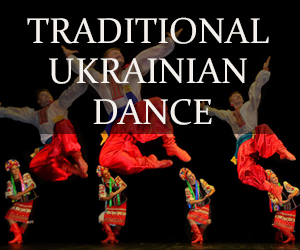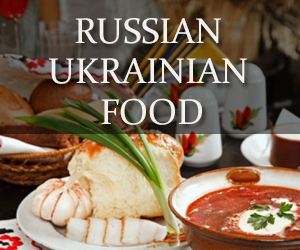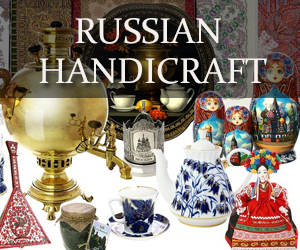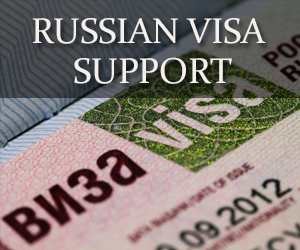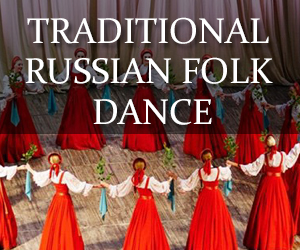Every culture has its unique etiquette and customs. For the most part (with slight variations from country to country – region to region), Russia, Ukraine and other post-Soviet nations all share similar “rules” of social behavior. First time visitors to Russia and Ukraine are often pleasantly surprised, sometimes confused, and in certain cases, taken back by the peculiarities of Russian etiquette. To minimize the culture shock for first time visitors, we’ve outlined some of the more prevalent conventions of social behavior found in Russia, Ukraine and former Soviet states.
“Cold” Public Behavior
 The first impression of many foreigners, particularly those visiting large cities, is an environment void of emotion. Strangers seldom greet one another on the street, cashiers rarely engage in “small talk” and a simple smile is sometimes difficult to find. At first glance Russians seem unfriendly, somewhat “cold” in nature.While its true that Russians are very restrained in public, the characterization of an “unfriendly” nationality is quite undeserved. Once you form a friendship with a Russian, or group of Russians, you will quickly change your opinion about Russian character.
The first impression of many foreigners, particularly those visiting large cities, is an environment void of emotion. Strangers seldom greet one another on the street, cashiers rarely engage in “small talk” and a simple smile is sometimes difficult to find. At first glance Russians seem unfriendly, somewhat “cold” in nature.While its true that Russians are very restrained in public, the characterization of an “unfriendly” nationality is quite undeserved. Once you form a friendship with a Russian, or group of Russians, you will quickly change your opinion about Russian character.
- From the opinion of a North American who has lived a considerable time abroad, not only in Eastern Europe, but in Latin America, I can sum up my impression of Russian character as such. For Russians friend is not a word used loosely. In Russia one has fewer friends (друзя – druzya) and more acquaintances (знакомые – znakomiye). In North America the term friend is more widely used, even when “friends” are little more than mere acquaintances. In Latin America you can be a complete stranger on the street, but get lots of smiles and have lots of friends – “Hola amigo. ¿Como esta?” With such a breakdown, most people naturally say that Latin America is the most “friendly” culture. While it is just the opinion of one person, I may disagree. If I got in trouble and needed assistance, I would certainly choose the assistance of a few good Russian friends versus all my “Amigos”. A Russian friend is someone you can always count on.
“Warm” Russian Hospitality
 The contrast between the “warmth” and hospitality of Russian homes versus the restrained, sometimes “cold” nature on the streets, is like night and day. It is a contrast you can sense both physically and emotionally. Walk down a typical Russian street and what do you see? Most of the time its grey, square, Soviet constructed buildings void of emotion. Its kind of depressing. Enter an apartment building and and walk up a few flights of stairs. It is still the same – grey, dark and kind of depressing. Now walk through the doorway of a flat and enter into a Russian home. Wham – suddenly you are hit with warmth and color and tidiness that is nonexistent on the other side of the doorway. Any visitor who has formed a friendship with Russians and/or Ukrainians can attest to this experience. The warmth and generosity of Russian homes, both physical and emotional, is quite incredible.
The contrast between the “warmth” and hospitality of Russian homes versus the restrained, sometimes “cold” nature on the streets, is like night and day. It is a contrast you can sense both physically and emotionally. Walk down a typical Russian street and what do you see? Most of the time its grey, square, Soviet constructed buildings void of emotion. Its kind of depressing. Enter an apartment building and and walk up a few flights of stairs. It is still the same – grey, dark and kind of depressing. Now walk through the doorway of a flat and enter into a Russian home. Wham – suddenly you are hit with warmth and color and tidiness that is nonexistent on the other side of the doorway. Any visitor who has formed a friendship with Russians and/or Ukrainians can attest to this experience. The warmth and generosity of Russian homes, both physical and emotional, is quite incredible.
- Food and drink is a very important part of Russian hospitality. When invited for dinner you will be treated to a variety of home prepared dishes, most of which are described in our menu of Russian cuisine. When socializing around the table with spirits, there is always some sort of snack food(закуски – zakuski), which are particularly useful as a “chaser” after drinking. When drinking tea or coffee, there are always some sort of chocolates or sweets (слатки – slatki). Russians love their sweets.
 Vodka and the toast are important components of Russian culture. One minor problem for foreigners (particularly for those who don’t drink much), is that toasting and drinking is a social event performed in unison for comradeship. In the west one is more accustomed to drinking at your own pace (so as to last the whole evening). While opting out of a toast is totally acceptable, some foreigners may get themselves in “trouble” when they try to keep pace with their Russian hosts.
Vodka and the toast are important components of Russian culture. One minor problem for foreigners (particularly for those who don’t drink much), is that toasting and drinking is a social event performed in unison for comradeship. In the west one is more accustomed to drinking at your own pace (so as to last the whole evening). While opting out of a toast is totally acceptable, some foreigners may get themselves in “trouble” when they try to keep pace with their Russian hosts.
- If you do drink, here are a few tricks that Russiansswear by.
- First – don’t drink down in order. That is, if you start with beer, go up to wine, then to vodka, but never go the other way. Do so and you risk a big hangover in the morning.
- Second – if the hangover is unavoidable, you can always use a trick of the Russians. Drink a beer or small amount of alcohol the next morning to kill the hangover. It is such common practice in Russia that they have an actual verb in their vocabulary just for this act.
(опохмелиться – opokhmelitsya).
- When invited as a guest to a Russian home it is customary to bring some sort of small gift for your host. A box of chocolates, a cake, beer or a bottle of wine are all suitable.
Gender Roles
 Gender roles in Russia and Ukraine tend to be much more traditional than they are in the West. In general, men should be strong and assertive while women should be smart and beautiful. Accordingly, Russian women tend to dress much more femininely (as to accentuate their beauty) and men still adhere to traditional male etiquette. For guys visiting Russia (particularly for guys who will be courting a female), here are a few good manners to remember.
Gender roles in Russia and Ukraine tend to be much more traditional than they are in the West. In general, men should be strong and assertive while women should be smart and beautiful. Accordingly, Russian women tend to dress much more femininely (as to accentuate their beauty) and men still adhere to traditional male etiquette. For guys visiting Russia (particularly for guys who will be courting a female), here are a few good manners to remember.
- bring flowers or a small gift for your date (make sure to buy an odd number of flowers, as an even number is for funerals – see Russian superstitions)
- offer your hand in assistance when a lady is entering or exiting a vehicle or public transportation
- always open the door for a lady
- assist a lady when she needs to put on or take off her coat
- in a restaurant, assist a lady with her chair, pour her drink and make sure she is served before you start your meal
- if she smokes, light her cigarette
- on public transportation, always offer your lady to sit first when there is only one seat (its also considered good manners to offer elderly women and mothers your seat)
- always offer to carry heavy bags
- when greeting, a kiss on the cheek is customary – many women consider it unfeminine to shake hands when meeting (don’t kiss a woman on the forehead, this is reserved for funerals)
- finally, it is common custom that the man pays for the date
Traditional gender roles in the Russian home are also still quite common. Women typically cook and clean, men take care of repairs and maintenance. Although this isn’t a great revelation (this is still customary for most cultures around the world), some feminists from the West may object to a certain degree of “inequality”. A point that may appease such feminists, is the fact that this gender gap is much less prevalent in younger generations. Observe a twenty-something Russian couple today, versus a couple of the “baby boomer” generation and its quite apparent that the male is now taking on more responsibility in the kitchen, with the children, and (on occasion), even with the cleaning.
Respect of Rules / Law
 For most Russians and Ukrainians, rules are meant to be broken. At an early age school children develop innovative means to pass exams – using notes when notes are prohibited, “cooperating” with classmates when teachers exit the room. While such forms of cheating are frowned upon in the West, rule breakers in Russian schools are largely ignored.
For most Russians and Ukrainians, rules are meant to be broken. At an early age school children develop innovative means to pass exams – using notes when notes are prohibited, “cooperating” with classmates when teachers exit the room. While such forms of cheating are frowned upon in the West, rule breakers in Russian schools are largely ignored.
In business, black market and bribes (which were refined during Soviet times), are still key components of commerce. Rules are meant to be bent and circumvented, right from the wealthiest Russian oligarchs who made fortunes in fraudulent loans-for-shares auctions of the early 1990s, to the little businessman who avoids expensive state fees via less expensive “gifts”. This is, without a doubt, the biggest barrier to foreign business in Russia. Without a trusted local partner, many Westerns struggle to figure out all the nuances of the Russian system.
If you are not working in a school or in business, then your biggest exposure to Russians’ disregard for rules will definitely be on the streets. Russian and Ukrainian drivers are chronic offenders of traffic rules. Speed limits have little significance and red lights are frequently ignored. One should take extreme caution while crossing the street, as most drivers are oblivious to crosswalks and have complete disregard for pedestrian traffic. And while its often fun to make light of Russian driving habits, its really no joke. The single biggest health hazard when traveling to Russia is the risk of traffic and/or pedestrian accidents.


